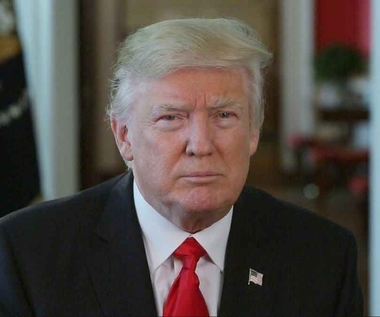Being indicted isn't Donald Trump's problem - impeachment might be

In the wake of an absolutely stunning 60 minutes of revelations on Tuesday afternoon, you might have been tempted to wonder whether President Donald Trump was in real legal jeopardy.
After all, his one-time personal lawyer Michael Cohen testified as part of a plea agreement in New York City that then-candidate Trump had "directed" and "coordinated" his efforts to hide payments discussed in the run-up to the 2016 election to two women -- porn star Stormy Daniels and ex-Playboy model Karen McDougal -- in an effort to keep their allegations of extramarital affairs with Trump out of the press. (In Daniels' case, a $130,000 payment was made, which Trump then reimbursed Cohen for, according to his lawyer.)
That is a violation of campaign finance laws, one of the eight charges that Cohen pleaded guilty to on Tuesday. And so, if Cohen admitted he broke the law and testified that he did it at the direction of the President then, well, isn't Trump in deep trouble?
Probably not. And the reason is that special counsel Robert Mueller's office has apparently signaled to the President's legal team that they will abide by longstanding Justice Department regulations that stipulate that a sitting President can't be indicted. "All they get to do is write a report," Trump lawyer Rudy Giuliani told CNN's Dana Bash in May. "They can't indict. At least they acknowledged that to us after some battling, they acknowledged that to us."
On Tuesday night, a source close to the White House told Fox News' John Roberts, "Remember, the President cannot be indicted."
To be clear: There is a debate in the legal community about the prohibition on indicting a sitting president, but it seems unlikely Mueller would push for an indictment as a direct result of his investigation.
The more likely threat to Trump -- and this is as true following the Cohen plea deal and Paul Manafort's conviction as it was a week ago -- is the possibility that the House takes up articles of impeachment against him.
Take a step back: This case has always moved on two related but not identical tracks. There is the legal end of things, which has led to a series of criminal charges out of the Mueller team and its most high-profile conviction in the form of Trump's former campaign chairman, Manafort, on Tuesday. Then there is the political track, which has to date taken a back seat to the legal jockeying but is the far more dangerous path for Trump.
At some point in the (relatively?) near future, Mueller and his team will release the findings of their probe into Russian interference in the 2016 election, whether any collusion between the Russians and the Trump campaign existed and whether Trump obstructed justice by getting in the way of the investigation.
Is it possible that Mueller will, contra Giuliani, push for Trump to be indicted? I mean, anything is possible. But what's much more likely is that Mueller -- in deference to established Justice Department protocols --will simply let the report speak for itself.
Assuming Mueller does that, the political track will be the only way in which Trump could be punished in any meaningful way. To date, national Democrats have been reluctant to talk too much about possible impeachment proceedings against Trump -- leaving that sort of talk to a small number of ultra-liberal members of the party.
It remains to be seen whether Tuesday's events change the minds of people like House Minority Leader Nancy Pelosi. But at least one somewhat unlikely source believes that the Manafort conviction on eight counts of financial crimes and the Cohen plea agreement have put impeachment very much on the ballot in November.
"Today clarifies that November is a referendum on impeachment -- an up or down vote," Steve Bannon, Trump's one-time senior strategist told Bloomberg's Jennifer Jacobs on Tuesday night. "Every Trump supporter needs to get with the program."
That's a startling statement by Bannon, although he may not be wrong about it. If Democrats win back control of the House in the coming midterm election -- and they are favored to do so -- it's hard to imagine calls for impeachment from their party's base wouldn't grow louder after the events of Tuesday.
The wild card, of course, is what Mueller's report ultimately finds. If it fully exonerates Trump, a move toward impeachment would likely be cast as a pure political ploy by Democrats. If it doesn't clear Trump, however, then Democrats will likely seriously consider the idea of impeachment. The question at that point is whether any Republicans would join them.
Tuesday changed a lot of things in political Washington.
One thing it didn't change is that the real threat to Donald Trump's presidency in all of this isn't indictment. It's impeachment.
Analysis by Chris Cillizza, CNN Editor-at-large. The-CNN-Wire™ & © 2018 Cable News Network, Inc., a Time Warner Company. All rights reserved.
The Gayly – August 22, 2018 @ 7:15 a.m. CDT.





